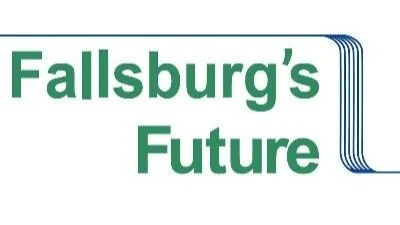Sullivan County's Incinerator Plan: A Toxic Step Backward
Dear Friends and Neighbors
Sullivan County is flirting with one of the most dangerous and costly mistakes in its history: the construction of a new trash incinerator in Monticello. While communities across the nation are shutting down their incinerators after decades of harm, our elected officials are considering spending more than $146 million to build one here.
If approved, this would be the first new incinerator in the United States in more than a decade. And it could be one of the worst decisions Sullivan County has ever made.
Waste of Energy, Not Waste-to-Energy
Incinerators are often dressed up as “waste-to-energy” facilities, but in reality, they are waste-of-energy plants. They destroy massive amounts of reusable and recyclable material while generating only a small amount of electricity — and a massive amount of pollution.
Burning garbage actually pollutes the air more than burning coal. The toxic smoke and microscopic particles released don’t just vanish — they enter our lungs, bloodstream, and soil. Anyone within a 50-mile radius of the incinerator could be affected depending on the prevailing winds. And instead of eliminating landfills, incinerators create a steady stream of highly toxic ash that must be buried in smaller, even more dangerous landfills. For every 100 tons of trash burnt there are 30 tons of toxic ash left behind.
Proven Health Hazards
Medical experts have been warning communities for years: living near an incinerator is a health risk. Studies around existing incinerators show alarming increases in:
Respiratory, cardiovascular, and urinary diseases
Pre-term births and babies born with spina bifida or heart defects
Higher rates of cancers, including lung, liver, bladder, gallbladder, colorectal, renal, stomach, childhood cancers, leukemia, soft-tissue sarcoma, and non-Hodgkin lymphoma
Increased dioxins in the blood of incinerator workers
Dr. Steven Goldstein, a pediatrician, recently explained that the fine particles from incinerator ash are invisible to the eye but extremely dangerous: “These tiny particles can be absorbed into the body from the lungs or intestinal tract and then go into the bloodstream,” leading not only to heart and lung disease but even an increased risk of dementia across all ages.
Financial Disaster in the Making
Beyond the health toll, incinerators are a raw deal for taxpayers. They are typically tied to long-term monopoly contracts with “put-or-pay” clauses, which force communities to provide a set amount of waste or pay penalties. This means if Sullivan County succeeds in recycling or reducing waste, we could be punished financially.
The City of Harrisburg, Pennsylvania, learned this lesson the hard way. Its incinerator project led to $280 million in debt and forced the city into bankruptcy. Do we really want to gamble Sullivan County’s future the same way?
Meanwhile, property values drop near incinerators — who wants to live next to one? Far from solving our financial woes, a Monticello incinerator would saddle us with debt and make our communities less desirable.
Environmental Injustice in Monticello
Siting the facility in Monticello is not accidental. This community, already designated by New York State as a “Disadvantaged Community” due to pollution exposure and historic disinvestment, has a large Black population. Studies show incinerators in majority Black and Brown communities are twice as large as those in majority white communities.
As Alasha Santiago of the Sullivan County NAACP stated, “We cannot let corporate greed and political power exploit our community. Our lives depend on it.”
A History of Bad Ideas and Bad Actors
This is not the first time Sullivan County has been targeted. In the 1990s, medical waste company Stericycle tried to build an incinerator here. Grassroots activism stopped it — and for good reason.
Now, history may repeat itself. One company showing interest is Reworld (formerly Covanta), a New Jersey-based waste giant with a long track record of permit violations, environmental fines, and lawsuits. Earlier this year, New York State’s Department of Environmental Conservation fined Reworld $878,500 for mishandling toxic ash at its Long Island facility. For a corporation of its size, that fine amounted to little more than a week’s worth of revenue — a slap on the wrist, not real accountability.
Why should we let a company with a history of environmental violations set up shop in Monticello?
Real Solutions Exist
Other communities are rejecting the incinerator myth and embracing zero waste strategies: reducing waste, expanding recycling, and creating jobs through composting and reuse industries. These approaches protect public health, preserve natural resources, and cost far less than building and maintaining an incinerator.
A Call to Action
This incinerator would poison our air, risk our health, saddle us with debt, and lower property values — all while targeting one of the most vulnerable communities in the county. Sullivan County residents must make it clear: we will not accept this toxic step backward.
Attend town and village meetings. Demand answers from every legislator. And remember — we elect them, and we can vote them out.
There will be an election for Town Board this fall. Several current members will be running for re-election. Fallsburg Future has decided to publish a weekly newsletter highlighting the issues that face the residents and the town. Each newsletter will highlight a particular topic of concern as well as an overview of a particular issue. We have had technical issues with our email service. It has been corrected and you are able to respond to this email.
Fallsburg's Future is a community network of concerned Fallsburg residents established in January 2016. Its Mission is to help guide the urban development of the town of Fallsburg and its five hamlets, to promote its sustainable economic development, protect the fragile beauty of its natural habitats and enhance the opportunities and quality of life for all its residents and visitors. We hope to curb the suburban sprawl that is threatening to overwhelm the town’s physical infrastructure and destroy the natural beauty that the area depends on for its future development. See us on Facebook and our website Fallsburgsfuture.com.

